- Size
- Smallest
- Small
- Small to Medium
- Medium
- Large
- Giant
- Characteristics
- Smartest
- Hypoallergenic
- Fluffy
- Best Guard
- Best Family
- Best for Kids
- Low Shedding
- Healthiest
- Police Dogs
- Most Calm
- Quietest
- Color
- White
- Black
- Grey
- Brown
- Blue
- Red
- Coat
- Hairless
- Short
- Long
- Origin
- Japan
- China
- Australia
- Germany
- Italy
- United States
- France
- Group
- Hound
- Terrier
- Herding
- Toy
- Working
- Sporting
Why Owls Are Not Suitable Pets: The Interplay of Law and Ethics
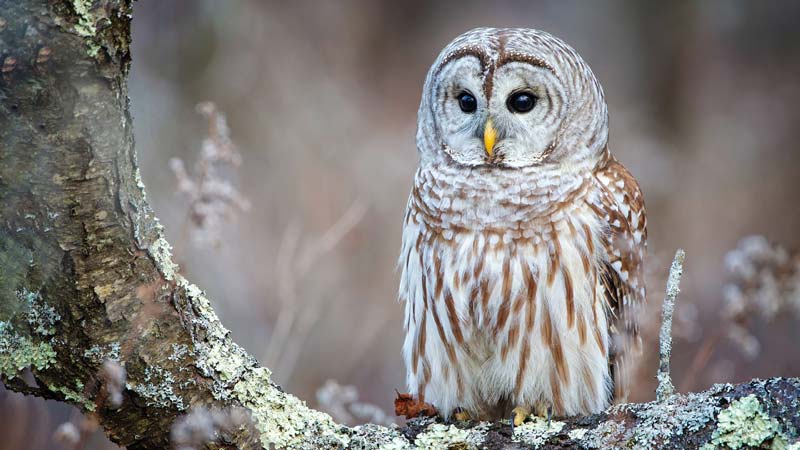
Photo by Philip Brown on Unsplash
Owls have long been revered for their beauty, mystery, and unique characteristics. Their silent flight, piercing eyes, and nocturnal behaviors have captured the fascination of people all over the world. It's no wonder that some individuals might be tempted to keep these magnificent birds as pets. However, while the idea of having an owl as a companion may seem enchanting, the reality is quite different. Owls, despite their allure, simply do not make good pets.
In this article, we will explore six compelling reasons why owls are not suitable as domestic companions. From their wild nature and specialized dietary needs to their requirement for ample space and legal restrictions, we will delve into the complexities of owning an owl and demonstrate why these magnificent creatures are best appreciated from afar, in their natural habitats.
So, if you've ever contemplated having an owl as a pet, read on to discover the compelling reasons why it is best to admire these captivating birds from a distance.
1. Guardians of the Wild
Nestled within the intricate web of wildlife, owls claim their place as essential guardians of ecosystems around the world. Their presence and contributions are pivotal in maintaining ecological equilibrium, particularly when it comes to controlling rodent populations. Owls, with their stealthy flights and acute hunting instincts, act as nature's efficient and effective pest control agents. By keeping rodent populations in check, they help prevent widespread agricultural damage, reduce the prevalence of diseases carried by rodents, and ensure the overall health of ecosystems.
Recognizing the importance of these magnificent creatures, laws have been enacted to prohibit the ownership of owls. These guardianship measures serve a critical purpose: protecting owls from being plucked out of their natural habitats and thrust into the confines of human households. Such laws aim to preserve the delicate balance of nature by acknowledging that owls belong where they can truly thrive - in the wild.
2. Space Requirements
Owls, by their very nature, are creatures of wide-open spaces. They necessitate expansive areas far beyond the confines of typical indoor living spaces. A mere cage or confined area won't suffice for these magnificent birds. To house an owl adequately, a substantial aviary is a necessity. However, this enclosure must be constructed with durable materials like sturdy wire, as an owl's powerful talons can quickly dismantle a wooden enclosure.
Domestic settings seldom offer the space and environment that owls truly require. Outdoor aviaries might be the closest semblance to their natural habitat, but it comes at a cost. Owls relegated to outdoor enclosures lack the intimacy and interaction expected from a pet. Bonding becomes a challenge, as the human-owl connection is limited to occasional visits, leading to potential stress for the bird due to the absence of consistent human interaction.
In essence, the inability of domestic settings to meet the expansive spatial and environmental needs of owls highlights the fundamental disparity between their natural habitat requirements and the constraints of living within human-centric spaces. This mismatch poses significant challenges in attempting to integrate owls seamlessly into domestic settings as traditional pets.
3. Owls Are Nocturnal Creatures
They are most active and do their hunting during the nighttime hours. Unlike other birds, owls make noise at night, especially during their mating season. This can include hooting, screeching, and other vocalizations.
In contrast, domestic parrots tend to be silent during the dark hours of the night, which makes them less likely to disturb neighbors. However, owls, being nocturnal, naturally socialize and mate noisily during the nighttime hours (such as the Great Horned Owl can hoot loudly throughout the night), when their noises can be most bothersome to neighbors.
When considering owning an owl, it's crucial to be aware of its natural behaviors and potential noise issues, and take into account the impact on both the well-being of the owl and the harmony of your living environment.
4. Demands of Owl Care
Caring for an owl comes with a unique set of demands far beyond the usual responsibilities of pet ownership. Unlike many conventional pets, finding a caretaker equipped and willing to handle the specialized needs of an owl presents a formidable challenge.
The care routine for an owl involves intricate tasks, such as thawing frozen rodents, ensuring their freshness, and feeding them to a creature designed for hunting and consuming whole prey. Handling such tasks demands not only a unique skill set but also a level of comfort with the gory and visceral aspects of feeding raw meat.
Additionally, owls are unable to be easily trained or socialized like other pets. Their natural instincts and behaviors make it difficult to find suitable caretakers when you want to go on vacation or travel without your owl.
5. Messy Nature
Like all birds, owls do excrete waste, and because they primarily eat meat, their droppings can carry a strong odor. In addition to regular waste, owls also regurgitate pellets containing the undigested parts of the animals they have eaten, such as bones and feathers.
Owls can create a significant amount of mess in their living environment, and cleaning up after them can be a laborious task. It may involve regularly cleaning the floor of their aviary, removing excrement, feathers, and any other debris. Owning an owl can often require more cleaning and maintenance compared to owning a large parrot or other pets.
It's important to be prepared for the additional cleaning responsibilities and potential odor associated with owning an owl. Keeping their living space clean is essential for their health and well-being.
6. Wildlife Protection Measures
In various countries, including the United States, regulations governing the ownership of owls are stringent, primarily aimed at safeguarding the welfare and conservation of these magnificent creatures. Specifically, in the U.S., acquiring and maintaining a legal status for owning native owl species involves navigating a thorough process overseen by the U.S. Fish and Wildlife Service (USFWS).
License and Training Requirements
Individuals aspiring to keep native owl species in captivity must secure a license from the USFWS. This licensing process isn't just a formality; it involves rigorous training to ensure that prospective owners comprehend the specialized needs and care requirements of these birds.
Rehabilitation vs. Domestic Ownership
It's crucial to recognize that, even with a license, the purpose of owning an owl is restricted to rehabilitation rather than domestication. Permitted individuals can house owls solely for rehabilitation purposes, aiming to restore their health before releasing them back into their natural habitats.
Regulations regarding owl ownership can differ across various countries and regions. It's imperative for potential owl owners to acquaint themselves thoroughly with the specific rules and regulations governing their area before considering owning an owl as a pet.
Related: The Legality of Owning Owls: Understanding the Laws and Ethics
The Bottom Line
Owls are wild animals, protected under the law, and can cause major injuries if not handled correctly. Private individuals are unlikely to qualify for permits to keep owls, as regulations are strict.
Owls should not be treated as pets, especially in a disrespectful or demeaning manner. Owls deserve admiration and respect for their natural behaviors. Instead of trying to keep an owl as a pet, it is recommended to support owl rehabilitation centers through cash donations or volunteering. This way, you can contribute to their care and well-being while leaving the expertise to the professionals who know how to handle and care for owls.
In summary, it is best to appreciate owls from a distance and support their conservation efforts rather than trying to keep them as pets.
You May Also Like
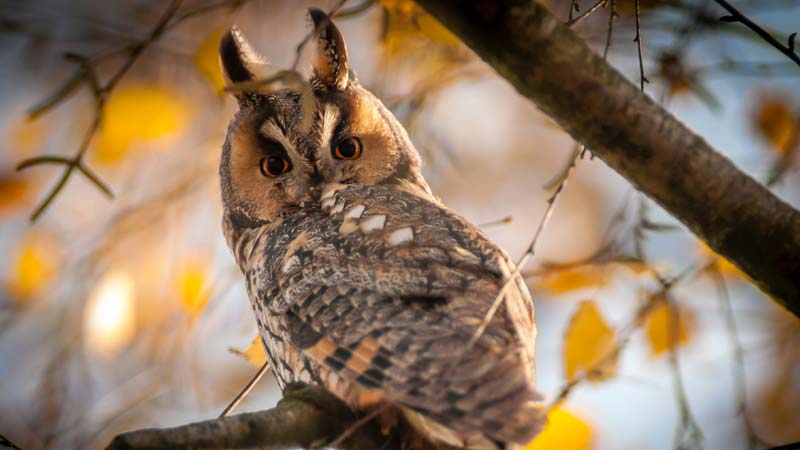 Other TopicsOwning Owls as Pets in Canada: Legalities and Considerations
Other TopicsOwning Owls as Pets in Canada: Legalities and Considerations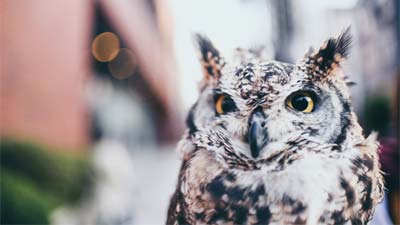 Other TopicsExploring The 7 Most Common Owl Species
Other TopicsExploring The 7 Most Common Owl Species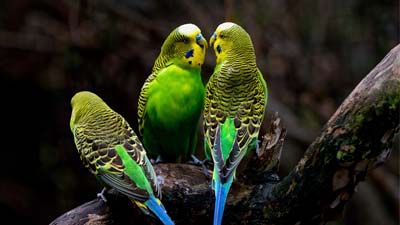 Other Pets, Pet Birds8 Easy-to-Care-for Pet Bird Species for Beginners
Other Pets, Pet Birds8 Easy-to-Care-for Pet Bird Species for Beginners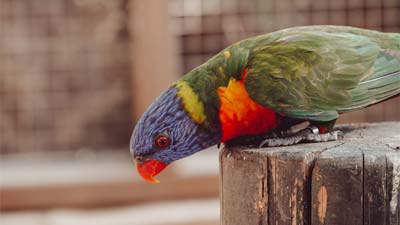 Other Pets, Pet BirdsThe Lineolated Parakeet: A New Owner's Guide (What To Know)
Other Pets, Pet BirdsThe Lineolated Parakeet: A New Owner's Guide (What To Know)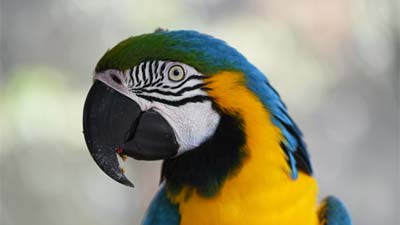 Other Pets, Pet BirdsThe Pionus Parrot: A New Owner's Guide (What To Know)
Other Pets, Pet BirdsThe Pionus Parrot: A New Owner's Guide (What To Know)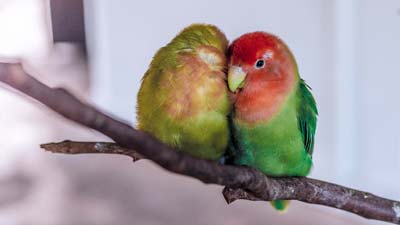 Other Pets, Pet BirdsThe Lovebird: A New Owner's Guide (What To Know)
Other Pets, Pet BirdsThe Lovebird: A New Owner's Guide (What To Know)